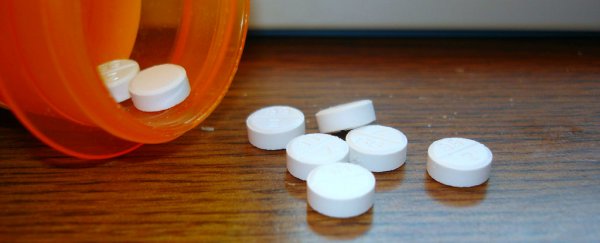Researchers have announced that an insulin pill has successfully reduced night-time blood glucose levels in 180 patients with type 2 diabetes.
That's pretty exciting, because before this, it was assumed that insulin wouldn't survive the digestive juices of the stomach, so couldn't be delivered orally - hence the dependence on insulin injections. But this new mid-stage trial suggests for the first time that given the right dose, insulin tablets could really work.
Most importantly, if these findings are verified and repeated in additional trials, it would mean that the insulin tablets could delay or potentially even replace injections for patients with type 2 diabetes.
The research hasn't been published as yet, so we need to take these claims with a grain of salt for now. But the drugmakers behind the new treatment - a small Israeli company called Oramed Pharmaceuticals Inc - say they're now submitting their results for peer review.
"It's been a long trip but it's finally at the point that it's beyond a doubt, the oral insulin works," chief executive of Oramed, Nadav Kidron, told Bill Berkrot for Reuters.
The new tablets work by using a protective coating and a high-enough dose of insulin so that most of it can get destroyed in the digestive tract, and it will still deliver a beneficial amount of the hormone to the bloodstream.
Type 2 diabetics struggle to regulate their own blood glucose levels because the beta cells in their pancreas are slowly stopping producing enough insulin following meals.
The condition can be caused by a range of lifestyle and genetic factors, and it can often be managed without the need for insulin injections. But currently around 90 percent of the nearly 400 million people with diabetes worldwide have type 2 diabetes, and many of them rely on injections to avoid dangerously high blood sugar levels.
In a 28-day trial, the Oramed researchers took 180 patients with type 2 diabetes who were no longer responding adequately to metformin - a first-line medication given to people when they're diagnosed with the condition.
Before bed, they were either given the insulin pill - which has been called ORMD-0801 - or a placebo, and their overnight glucose levels were monitored.
Those who were given the oral insulin had a mean night-time glucose reduction of nearly 6.5 percent compared to the placebo group.
Promisingly, there weren't any serious side effects reported, and no issues with the blood sugar levels dropping too low.
You can read up on the results of the trial here.
According to Oramed, Phase III clinical trials are expected to begin shortly, and if those results are positive, we might finally have an alternative to insulin injections available to those with advanced type 2 diabetes.
In addition to replacing injections, the researchers believe the insulin pills might actually be better for patients, as they mimic the pathway of natural insulin, which goes directly to the liver once it's produced, before being circulated through the blood stream.
"If you inject insulin, it goes straight into the bloodstream, bypassing the liver which also needs insulin," Miriam Kidron, the medical doctor who's leading some of the trials, told The Daily Mail last year. "The beauty of this pill is that it mimics the natural production of insulin by delivering insulin to the liver."
But despite the promising results for type 2 diabetics, there's no word as yet on whether something similar would work for patients with type 1 diabetes.
The difference is that type 1 diabetes is an autoimmune condition, which means the immune system is attacking patients' beta cells. Because of that, their blood glucose levels can rise and fall unpredictably - and it isn't always as simple as just needing to pop a pill to lower blood sugar levels.
But there's hope for type 1 diabetics too, with researchers recently developing a tiny patch that works like artificial pancreas, and can simply be stuck onto the arm to regulate blood sugar levels painlessly, without injections.
The patch is still in the early phases of development, but with research moving along pretty quickly on both of these fronts, the future is looking pretty bright for diabetics. Watch this space.
